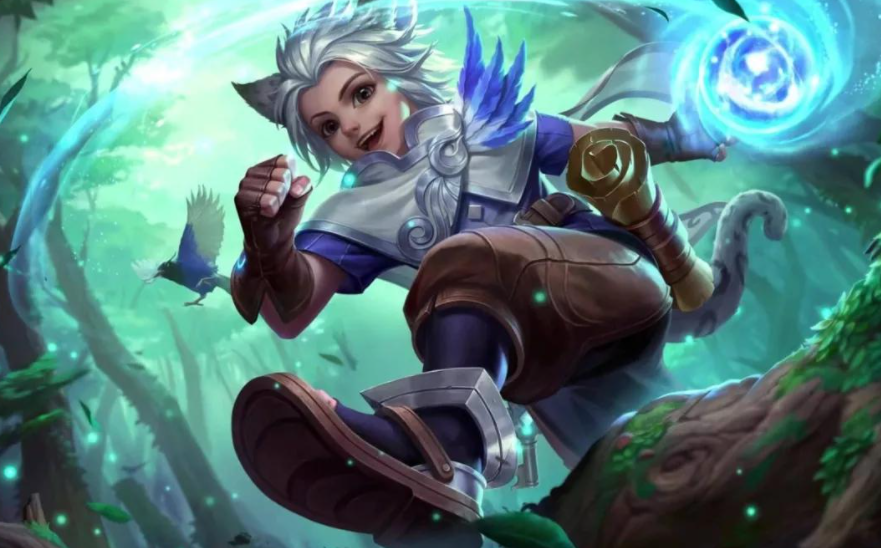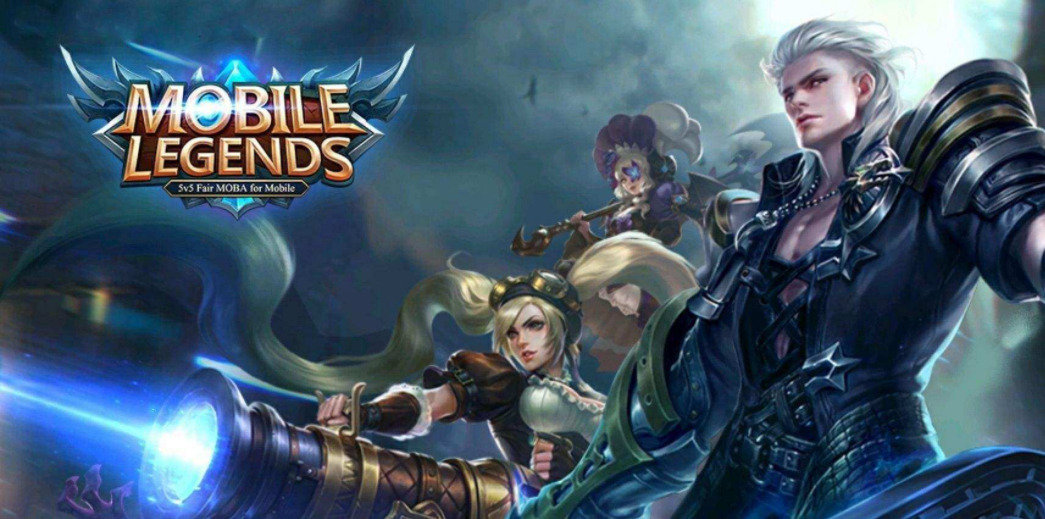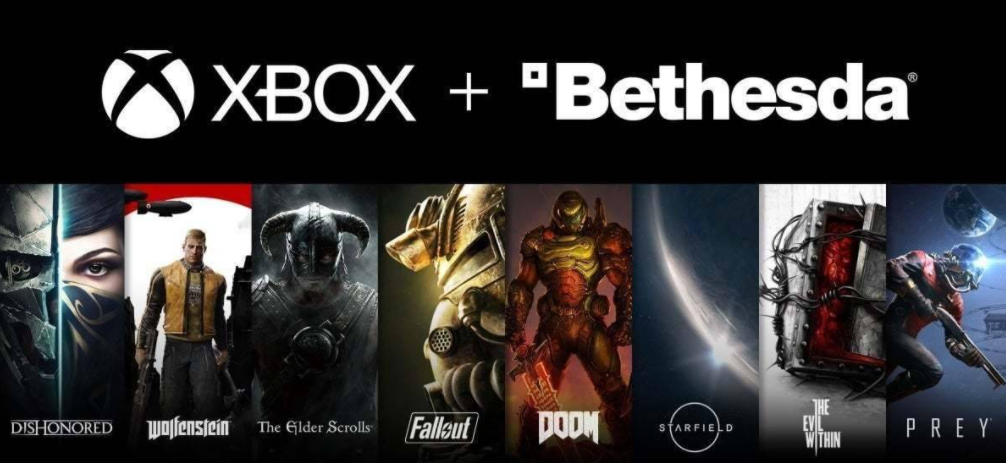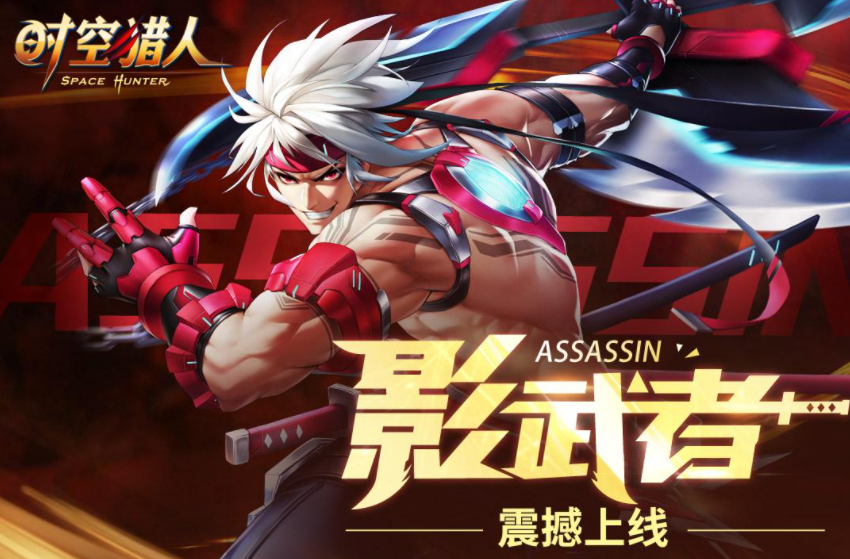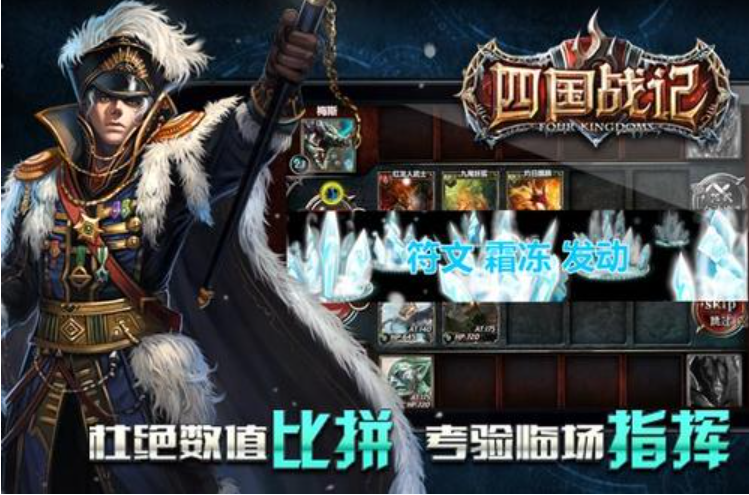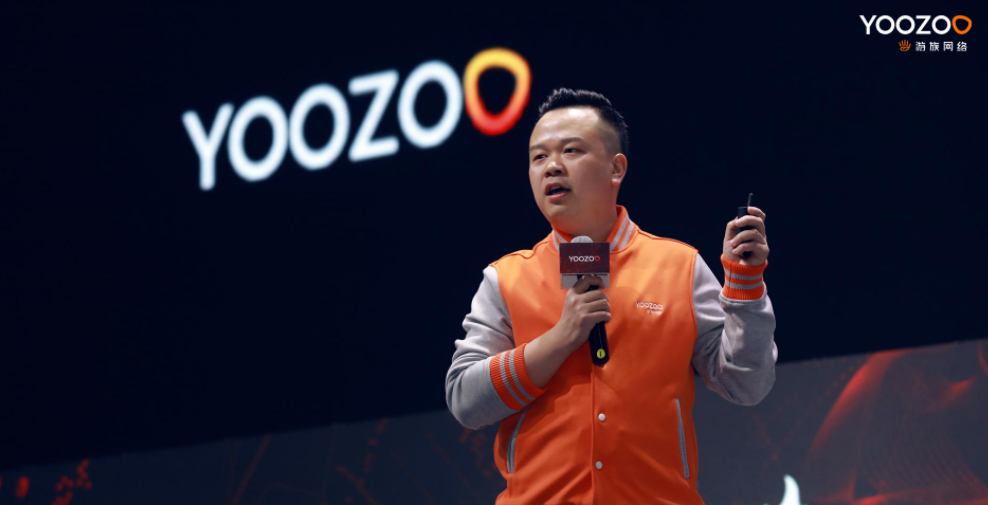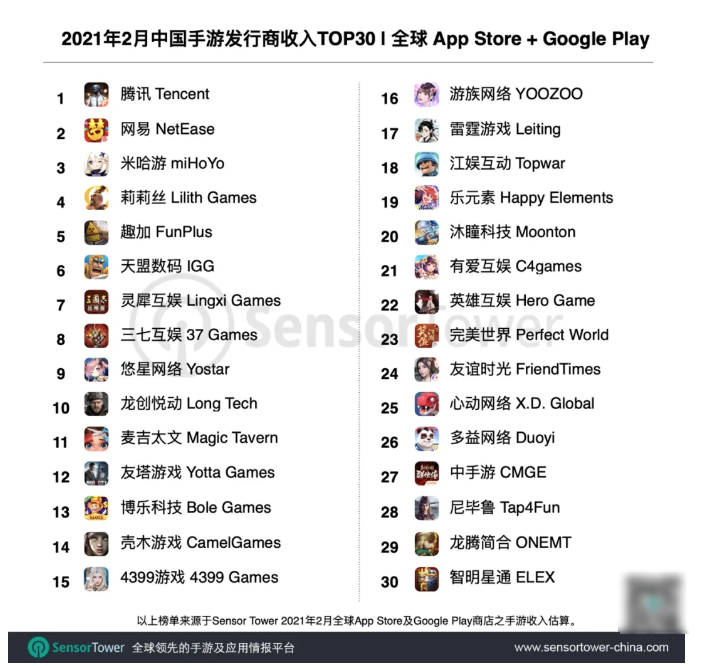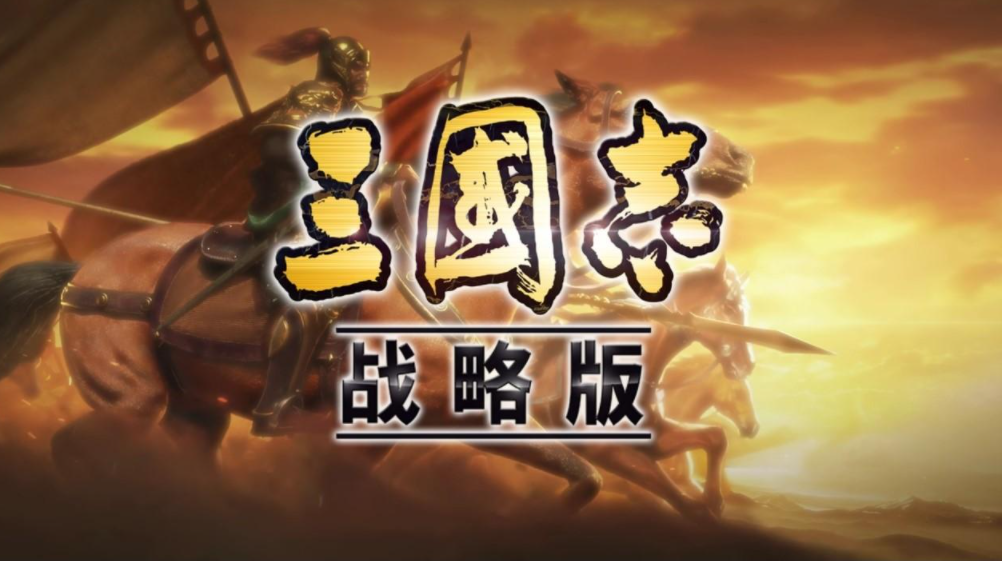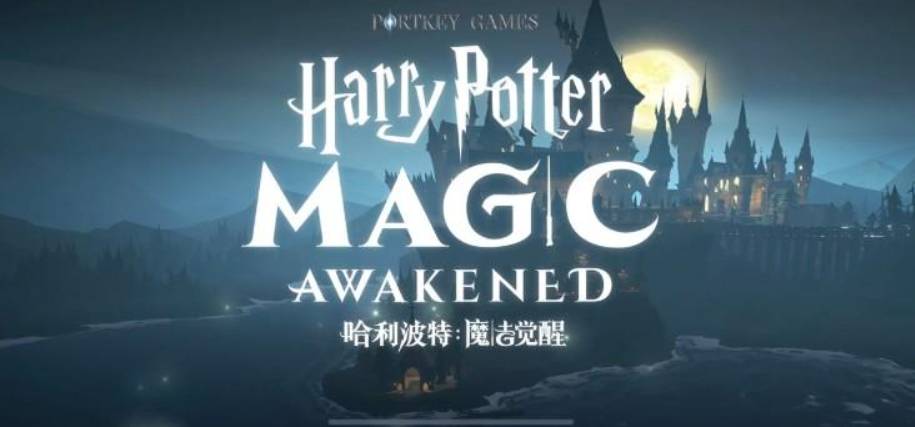The second wave of game acquisitions.
Editor’s note: This article is from the micro-channel public number “Entertainment Hard Candy” (ID: yuleyingtang), Author: Mao Lina, Editor: Li Chunhui.
First of all, let us congratulate another large group of gamers for financial freedom.
The news that ByteDance acquired Shanghai Mutong Technology has been lively for several days. Yuan Jing, CEO of Shanghai Mutong Technology, issued a letter to all employees, announcing that Mutong Technology and ByteDance’s game business brand Chaoxiguangnian reached a strategic acquisition agreement. After the merger, Mutong Technology joined the byte line and maintained independent operations. The reporting line remains unchanged.
It is reported that as early as 2018, Mutong Technology was waiting for the price, but it has not found a suitable buyer. The key point is that the price cannot be negotiated. The specific price at which Byte won Mutong has not been announced. According to Yuan Jing’s internal letter, there are also powerful manufacturers such as Xiaomi and Tencent in the buyer team, and Reuters has released news that the transaction value is US$4 billion. Judging from this, the outside world generally speculates that Mutong’s price should be between US$4-50 billion.
Byte Xide Mutong, inserted a sharp knife in the Southeast Asian market, and Tencent, which missed Mihayou, was not idle. At the end of January, Canadian game developer Klei (“Famine”, “Hypoxia”) announced that Tencent had acquired most of the company’s shares. In addition, information from the investment community stated that Tencent is raising a considerable amount of funds for potential game maker acquisitions. Companies that were exposed for consideration include Take-Two, EA, Zynga, Netmarble, Nexon, etc.
The latest news is that Tencent has invested in the game science of the development team of “Black Myth: Wukong”. Tencent accounts for at least 5% of all shareholders of Game Science. After the investment is completed, Game Science will continue to operate independently, and its autonomy will not be affected.
Touteng launches an arms race in the game, and overseas companies’ actions are also not small. Microsoft recently announced the acquisition of ZeniMax, the parent company of “Fallout” and “The Elder Scrolls” developer B, for a price of 7US$500 million is the largest investment in a game company in Microsoft’s history. In addition, Bloomberg’s latest news revealed that Microsoft is negotiating with Discord and will likely acquire this chat software company that mainly provides services to gamers at a price of more than $10 billion. The Swedish Embracer Group announced in mid-March that it would acquire Gearbox, the developer of the Borderlands series, for US$1.38 billion.
After Q1, the total transaction amount of game manufacturers at home and abroad has exceeded 10 billion U.S. dollars, and there are still many transactions in the pipeline or in progress. In 2021, the total amount of mergers and acquisitions in the gaming industry may hit a record high. In the new spring of gaming, the wind is full of money.
Why big manufacturers buy, buy, buy
The same is buying, buying, buying, and the reasons behind it are different.
Bytedance has been coveted and deployed in the game market for a long time. Although the development of the casual game track is remarkable, the medium-to-heavy game has always been a shortcoming of the byte. Xiongwen’s “The Death of Byte Beat, the End of the Mobile Game” is currently in the state of deletion of drafts on the entire network.
Byte has a lot of problems with games. I have gotten more than ten studios, but the market has not been able to make the name of “Byte Game”. The reason is the lack of competitive products. Without competitive products, the surrounding ecology cannot be established, let alone overtaking the goose factory pig factory in the corners. The lack of competitive products is also related to the difficulty of recruiting people, the lack of accumulation of self-research capabilities, and the lack of medium-to-severe products.
Since we are in a hurry, we rely on “money capability.” Byte acquired Mutong, aiming to learn from each other’s strengths, and value its heavy game research and development capabilities as well as its outstanding performance in overseas markets.
For domestic players, Mutong Technology and its representative MOBA game “Endless Showdown” may be relatively unfamiliar. The main battlefield of Mutong Technology is not domestic, but overseas markets dominated by Southeast Asia.
In 2016, after the launch of “Endless Duel”, it used a lot of human and financial resources to impact.The Southeast Asian market is optimistic, and this market is rewarded by contributing 61% of the total game revenue and boosting the long-term dominance of “Endless Duel”.
The e-sports event can be said to be the golden water for the “life extension” of MOBA games. Relying on the momentum of “Endless Showdown” as the top national game in Southeast Asia, Mutong Technology took advantage of the trend to cooperate with the Indonesian government and local e-sports associations in 2017 to promote the Indonesian Mobile Legends Professional E-sports League (MPL). The event became one of the most watched professional e-sports leagues outside of mainland China, surpassing the LCK of “League of Legends” and the ESL of “Counter Strike”.
Acquisition of Mutong will give Byte the chance to play a serious game table. In recent years, the goose factory has formed a “one super” pattern, and the frequent acquisitions are to broaden the track.
Tencent has always relied on investing in overseas markets, and the acquisition of Klei in January was no exception. Klei is a small but beautiful game company. Its two major products, “Famine” and “Hypoxia”, have high playability and high price conscience. Tencent and Klei cooperated to launch the online version of “Don’t Starve” in 2016. After this acquisition, Klei said that Tencent would not interfere with its operational strategy and revealed that the mobile version of “Don’t Starve” is under development.
In addition to overseas investment, Tencent’s actions in domestic two-dimensional games this year are not small. As of now, Tencent has increased its holdings and invested in as many as 18 game companies at home and abroad in 2021. Domestic game manufacturers are mostly concentrated in the two-dimensional field. Among them, the two-dimensional anthropomorphic mobile game “Shishi” developed by Shanghai Fantang Network “The Contract”, although it has been online for many years, the retention and activity of players is still considerable.
Tencent, which holds the top-tier game “Glory of the King”, did perform slightly inferior in the two-dimensional game, and even gave the B station and Mihayou the opportunity to rise one after another. Tencent has made a large-scale layout of the second dimension. The Erthorn Ape Base Camp B station also invested in two companies at the beginning of this year. They are Chengdu Lost, the developer of the Cthulhu mobile game “Night of Light” and the research and development of “Craftsman and Traveler”. Fang HangzhoutianEmpty box technology. It seems that the already crowded track of the two-dimensional game will be further “rolled in” this year.
In addition, the financial report shows that By the end of 2020, Tencent has sold more than 1 million Switch consoles in China and released more than a dozen Switch games. Joining hands with Nintendo, and now investing in the development team of “Black Myth: Wukong”, it is hard not to let people think that Tencent will take further action in the console market.
The investment behavior of overseas companies is also worthy of attention. The most shocking thing is that Microsoft won the parent company of B company ZeniMax for US$7.5 billion.
B agency has launched a number of popular games such as “The Elder Scrolls”, “Fallout”, and “Doom”. When talking about this acquisition, Microsoft Game Director Phil Spencer said that the addition of B agency means that there will be some in the future. Exclusive new game for Xbox and PC players.
Spencer’s words also reveal that Microsoft’s acquisition of B company is to further improve the platform strategy. Microsoft and Sony are fighting, Sony relies on exclusive games to attract players, and Microsoft has a huge game library provided by Game Pass. Christopher Weaver, the founder of Agency B, talked about the acquisition and said: In the future, what Microsoft owns, Sony will never get again.
In other words, Microsoft is not to be the king of market segments like consoles, but to build a collaborative gaming empire of X-box and PC through acquisitions. When it comes to games, think of Microsoft, such as Windows for PCs and office for office software.
The “shopaholic” who tends to be rational
This year’s surging investment in game companies by big companies is easily reminiscent of the 2013-2014 round of mergers and acquisitions for game companies in the capital market.
In 2013, a total of 20 listed companies in A-shares initiated 22 online game mergers and acquisitions, of which 14 were mobile game acquisitions, involving 19.469 billion yuan of mergers and acquisitions. The total amount of mergers and acquisitions even exceeded that of mobile games in 2013. Market size. In 2014, game M&A transactions became more popular. Domestic A-share listed companies have initiated 18 mergers and acquisitions for the game industry, with a total amount of 19.6 billion yuan.
Recalling that era now, the madness is comparable to Gatsby. Small and medium game companyThey are all on sale, for fear that they will be worthless if they missed this wave. At that time, in the A-share market, online game concept stocks were the biggest winners. From mobile games to web games, as long as they are connected with games, they can become popular. High-premium mergers and acquisitions have created a group of newly-emerged billionaires.
Compared with the hot money surging in 2013 and the concept of a-share company speculation, it is completely capital logic. In 2021, there will be a lot of rationality and will follow the industrial logic. The major manufacturers participating in the acquisition are mainly to build a moat.
From the types of mergers and acquisitions, we can also see that the two acquisition booms are essentially different.
This year’s mergers and acquisitions are mostly large players with existing game businesses, while the 2013 mergers and acquisitions are much more complicated.
The market bubble attracts traditional companies and Internet rookies into the battle, which can be divided into three categories: cultural media, such as Zhejiang News Media, Phoenix Media, Huayi Brothers, Guangguang Media, etc.; game companies and pan-telecommunications companies, including Zhongqingbao, Zhangqu Technology, Datang Telecom, etc.; as well as listed companies in traditional industries, such as Julong Pipe Industry, Tuowei Information, Tianrun Holdings, etc., many acquirers have never seen games in their business maps before.
The game at that time was not a game, but a golden stone of the capital market. Tianzhou Culture, a traditional publishing company, and Taiyue Shenzhou, which started with Fetion, entered the game track, exploring new businesses and even hyping up concepts; Huayi Brothers acquired Yinhan, in addition to film and game linkage to engage in cross-border, but also took a fancy to Yinhan’s outstanding back then Profitability-The net profit in the first half of 2013 reached 53.1 million, which is a good supplement to the film and television industry, which has always been tight in cash flow.
In the 2013 acquisition wave, there were also many game companies backdoor listing. Youzu Network Backdoor Plum Blossom Umbrella is a representative event at this stage. As a result, Youzu became the first domestic web-based game company to be listed on the market, and for a while, it made rapid progress. Then, there were a series of dramatic events such as “Three-Body” and poisoning, and the tragedy ended.
Compared with the enthusiasm of the capital market eight years ago, although the amount of acquisitions this year has repeatedly hit record highs, investment behavior has become more rational. Either to supplement shortcomings, or to consolidate and expand the track, or to build a full platform strategy. In short, it is to improve the industrial structure through investment behavior, or to make others “out of stock to buy” through acquisitions. It can be regarded as an act of digging a moat.
Rebirth of the game arena
The February 2021 China Mobile Game Publisher Revenue Report released by Sensor Tower not long ago shows that 34 Chinese manufacturers were shortlisted in the TOP100 global mobile game publisher revenue list, with a total of more than 2.24 billion US dollars in gold, accounting for the world’s TOP100 hands. 40.2% of the revenue of game publishers.
Originally, the domestic game Jianghu Netease and Tencent were fighting each other. In recent years, the goose factory has continued to lead the way. Coupled with the rise of medium-sized manufacturers represented by Mihayou and Lilith, the situation of “one super, many strong” has been Stable for a while.
As Ali and Byte frequently make new moves on the game track, big companies continue to acquire mergers and acquisitions, and the game world may be reborn.
Alibaba, who is an e-commerce company, has always been considered “no gene for making games”. The previous actions have not caused too much splash: Ali Games was established in 2015, and in 2017 Ali Games decided to invest 1 billion to create an “IP fission” plan In the same year, it acquired the original NetEase COO Zhan Zhonghui (Ding Dong) and other founders, Jianyue, known as “Little Netease”; Lingxi Interactive Entertainment, Jiuyou and other business brands were incorporated into Ali Interactive Entertainment; in 2018, Ali Interactive won the popular leisure game “Travel “Frog” agency rights. Unfortunately, after a set of combined punches, there was not much movement, and the frog’s son who finally grabbed his hand was cold. Ali was even directly sentenced to death by some people for playing games.
The success of “The Romance of the Three Kingdoms: Strategy Edition” injects a boost into Ali’s game dream. After the launch of “Three Kingdoms: Strategy Edition” in 2019, the average monthly income exceeded 300 million. During the epidemic in 2020, the game performed even more eye-catching. It can be said that it directly led to the interactive entertainment division of the game business of Alibaba Group (Lingxi Interactive Entertainment). ) The overall upgrade to an independent business group, parallel to Ali Entertainment.
The establishment of an independent business group means that Ali will give more resources to the game sector. In addition, Ali’s financial report also mentioned that the self-developed online game business in June 2020 has crossed the incubation stage, and Ali is known Mutual Entertainment has several products to be launched, “Start a group now”, “Order Storm”, “Player Array”, “Fortress Brawl”, and “Code M1”, “Code MCD”, “Code X25”, “Code Z1” 》Waiting research projects. Ali games in 2021 may welcome the explosion of research games.
Byte’s ambition in the game track is obvious to all. In terms of lightweight casual games, Byte has a publishing platform Ohayoo. Relying on the cooperation between Toutiao products, Ohayoo has run out of “My Kung Fu Special Cow” and “Yin Yue”. “Ball Ball” and other popular styles, as many as more than 40 styles with a turnover of more than 10 million.
Mid-to-heavy games are the weakness of Byte, and they have been generous in buying and buying. At present, there are 30 game companies related to Byte. Byte has successively acquired Beijing Big Eye Star Technology Co., Ltd., Beijing Zhiyu Zhishan Technology Co., Ltd., and Shanghai Maibo Culture Communication Co., Ltd. in the past few years. I dug a lot of gamers.
At the same time, Byte has established a number of game studios in the development of medium and heavy games, including the 101 studio (mainly focusing on classic IP development and MMORPG) and Wushuang studio (MMORPG, SLG, formerly known as Shanghai Mokun). , Card, MOBA, shooting games, etc.), Oasis Studio focusing on ARPG and MMORPG, Base Hangzhou, Jiangnan Studio focusing on the development of virtual idols, and Shenzhen Studio responsible for the construction of game event system and heavy game development. With the heavy gold hitting Mutong, BYTE has gradually moved from the past mild casual games to the medium-to-severe game field.
In terms of crazy buying, NetEase, a game veteran, looks a little different. At the end of February, NetEase announced its financial report. NetEase’s game revenue exceeded 10 billion for 11 consecutive quarters. The revenue mainly came from the strong vitality of classic game products and the strong ability to attract money from new games. In terms of new product reserves, NetEase also has a lot of secret weapons, including “Harry Potter: Magic Awakening”, “The Lordof the Rings: Rise to War, “Diablo: Immortal” and “Pokémon Adventure” have been locked by players in advance.
Talking about the strategy of going overseas in 2021, Ding Lei said that he would “walk on two legs”. One is to push his own developed games overseas; the other is NetEase, through investment and acquisitions, and partners to jointly develop overseas markets. As Ding Lei once said, “NetEase is not good at doing addition”, NetEase is obviously not as active as other companies in acquisitions. Content first, self-research first, is still the consistent strategy of the pig factory.
It’s not difficult to find that mid-sized companies such as Station B, Mihayou, Lilith and other medium-sized companies have succeeded in overtaking corners. In the final analysis, it is content to play games, especially medium-to-heavy games. Companies such as Ali and Byte that lack precipitation on the game track must rely on acquisitions to improve content quality.
But not all acquisitions are successful. The marriage of Byte and Mutong is a blessing or a curse, and we have to wait for the answer of time. Overseas EA can be said to be notorious for acquiring studios, and it has destroyed many high-quality solo studios. Domestically, Tencent’s “captive breeding policy” is currently recognized as the best in the industry. Low intervention will naturally produce good products; Perfect World’s acquisition of runic has become a failed case, “Torch Light” has become a third-rate IP, and the studio has been disbanded directly.
In summary, although Byte and Alibaba have invested heavily, their self-developed capabilities will be difficult to compete with Goose Pigs for a while. They only have the qualifications to sit on the poker table; Tencent’s self-developed and invested hands are China has reached the top, but there is still a lot of room for imagination in overseas markets; NetEase has steadily played and won classic IPs including “Harry Potter” and “Lord of the Rings”. Compared with the goose’s strategic location, the pig factory mainly defends the city; Shanghai The game four dragons, station B, perfection, etc., have areas of expertise, forming a “multi-strong” situation.
Should the lords slaughter the geese or how strong is it? In short, the show has just begun.



